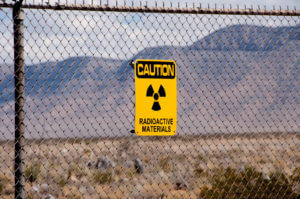
The Nevada Test Site is about 65 miles from Las Vegas and is known for the nuclear tests done there from 1951 to 1992. These tests exposed many soldiers and nearby residents to radiation, which can be harmful to health.
If you were near the Nevada Test Site during that time, it’s important to know your risk for radiation exposure and get checked for cancer. Catching cancer early can save lives, especially for veterans who might have been exposed to dangerous radiation.
Let us discuss how to get screened for cancer, focusing on those affected by radiation from the Nevada Test Site.
What is Radiation Exposure?
Radiation is energy that comes from a source and travels through space. It can be waves, like light or heat, or particles, like those from nuclear reactions. When it hits our body, it can damage our cells and DNA.
High levels of radiation can increase the risk of cancer because it can cause changes in our cells, making them grow out of control. Cancers often linked to radiation include thyroid cancer, breast cancer, lung cancer, and leukemia.
The Link Between the Nevada Test Site and Cancer
During the Cold War, the Nevada Test Site was used for nuclear tests. These tests, including explosions above ground, released a lot of radioactive material into the air. This spread far and wide, affecting military people and civilians nearby.
People who were exposed to this radiation are often called “atomic veterans.” They have a higher chance of getting cancer because of this exposure. Knowing what happened and the risks is important for understanding potential health issues.
Recognizing the Signs of Radiation-Related Cancers
Catching radiation exposure cancer early is important for treatment. If you were exposed to radiation, it’s good to know the symptoms. Some common signs of radiation-related cancers are:
- Losing weight without trying.
- Feeling very tired all the time.
- Finding unusual lumps or swelling.
- Having a cough that won’t go away or trouble breathing.
- Noticing changes in your skin, like new growths or sores that do not heal.
If you notice any of these signs of radiation exposure cancer, it is important to see a doctor. Regular health check-ups can help find cancer early, which improves your chances of getting better.
Getting Screened: A Step-by-Step Guide
The federal Health Resources & Services Administration funds clinics in Arizona, Colorado, New Mexico, Nevada, and Utah as part of the CDC’s National Exposure Screening and Education Program.
These clinics offer cancer screenings to individuals exposed to radiation, including downwinders, participants at the Nevada nuclear test site, uranium miners, millers, and transporters.
Here is a step-by-step guide on getting screened for radiation exposure cancer:
Understanding Your Risk Factors
Knowing what puts you at risk is the first step to getting screened. If you were near the Nevada Test Site or lived nearby during the testing period, you have a higher chance of radiation exposure. How long you were exposed and how close you were to the site affect your risk.
Finding a Doctor Who Knows Radiation-Related Cancers
Not all doctors know about cancers caused by radiation. It is important to find one who understands these specific risks. Ask other veterans for recommendations or reach out to veterans’ groups for help.
What to Expect During Screening
Once you find the right doctor, they will guide you through screening. Here is what usually happens:
- First Meeting: The doctor will ask about your medical history, including your radiation exposure and any symptoms.
- Check-Up: A physical exam will help spot any unusual signs or symptoms.
- Tests: Based on your symptoms and risk, the doctor might suggest tests like blood tests, X-rays, CT scans, or biopsies to check for cancer.
Help and Resources for Veterans and Cancer Survivors
There are groups that support veterans exposed to radiation and cancer survivors. They offer help like financial support and emotional counseling.
- Veterans Administration (VA): The VA gives healthcare and services to veterans, including those who were around radiation.
- Radiation Exposure Compensation Act (RECA): This program gives money to people who were affected by radiation from nuclear tests.
- Cancer Support Communities: Nonprofit groups offer support, counseling, and help for cancer survivors and their families.
Get Help with Your Claims Today
If you or someone you know may have been affected by radiation exposure from the Nevada Test Site, it is crucial to take proactive steps for your health.
At the Cancer Benefits Center for Downwinders, we are a dedicated advocacy group that provides vital information and resources for those impacted.
We can help you understand your rights, assist you in navigating healthcare options, and offer support in filing compensation claims.
To contact us for further information about cancer from radiation exposure or the process of filing compensation, call today at 1 (855) 631-7197. We look forward to serving you!
 Downwinders® Claims
Downwinders® Claims